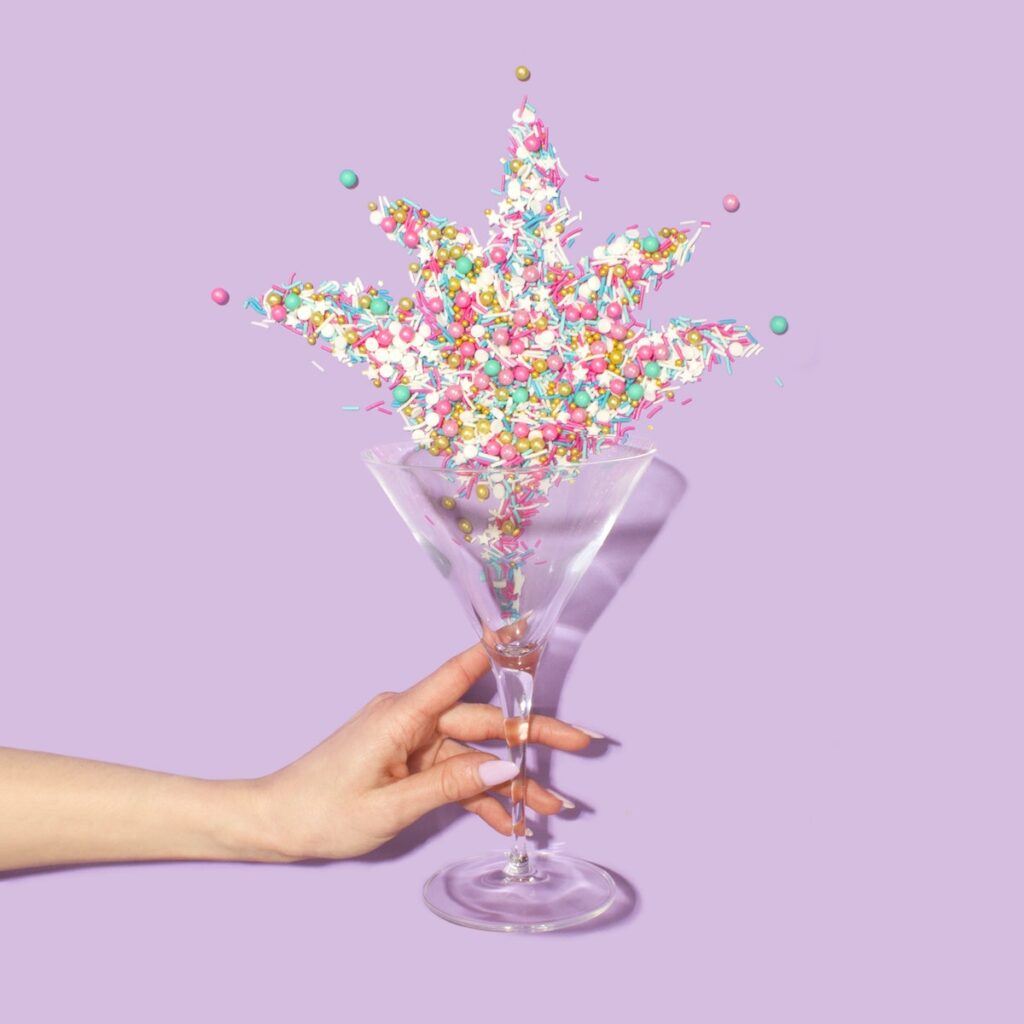Ideal for a life without all those hangovers…
Clearer complexion? Heavier wallet? Energy levels through the roof? Concentration retur……
Hey, you! Yes, you. Back in the room. For many who have been doing (enduring) Dry January, the positives of a spell spent away from booze have been welcome, surprising, and at times, a little concerning; the new outlook and fresh feeling has led us to wonder just how bad we’ve been feeling the rest of the year.
The science seems to agree. According to the guys at Alcohol Change, the benefits begin even in this first week; you’ll likely be sleeping more soundly and as a result, energy levels will be up. The second week sees a certain sense of a ‘fog lifting’, and in the third, things get real; you might notice weight shifting and exercise having a greater impact. What’s more, you may well sense a sharpness at work which you hadn’t felt for a while. Finally, in the fourth week, even your risk of certain diseases will have fallen. Need we go on?
Actually, we will go on. Because why stop there, at one month? There are many more goals to meet and gains to be made by continuing this Dry January thing onwards through February and into the rest of 2026.
Whether you’re planning on giving up drinking completely or this period of abstinence has convinced you to change your relationship with alcohol into a more gentle, mindful approach, then there are some small changes you can enact to your everyday to make the transition smoother and easier to maintain. With that in mind, here are 7 lifestyle changes which will make sustaining Dry January easier, IDEAL for a life without all those hangovers.
Live Within A Strict Routine
For so many, it seems like the temptation to drink strikes most directly when we’re feeling listless and uninspired. A gloomy day outside with little on the agenda often leads to us filling up a glass just to fill in some hours. Many former drinkers who gave up successfully suggest that it’s essential to have a strict, scrupulous routine, particularly in those first few months, to prevent the mind from wandering into the bottle shop.
Even something as simple as getting up and going to sleep at the same time every day instills a sense of discipline and builds resilience. Having breakfast, exercising at a consistent, scheduled time, working within set, rigid hours and always having an activity lined up for the evening can all contribute to you keeping focused on your goals and, let’s face it, distracted from your vices.

But Take Things Gradually
If you didn’t ‘do’ Dry January, then don’t view the month as a failure in your goal to cut down. Every day is a new opportunity to get healthier, then focus with your eyes facing forward, rather than regretting what’s passed.
What’s more, many have pledged to cut back, rather than cut out, and that’s commendable, too.
It’s important to set goals which are manageable, so each day can be treated as a potential success. Simple steps can help make cutting down easier. Many swear by ‘dinner drinking’; that is, to only allow yourself a drink during dinner, allowing for a leisurely, sociable relationship with alcohol to develop.
Others buy in a spirit measuring cup, to make sure their g’n’ts at home don’t turn out to be quadruple strength. Some simply keep only the drink they want for the evening in the house. Whatever works for you is, of course, the best way forward.
If things are more serious, then it’s best to seek professional help rather than doing things alone. Specialist alcohol rehab services can offer the structure and medical supervision that some people need. The NHS also have a page dedicated to Alcohol Support, including help with finding alcohol addiction services in your area. Do check it out.
Don’t Just Cut Out, Feed In
Abstinence and asceticism is all well and good, but if you’re not feeding back in, and nourishing your body and soul, then you’re less likely to be successful in giving up or cutting back on alcohol.
This thing is best realised in a wholesome, holistic way. By adopting a healthy, balanced diet (with a few treats thrown in, of course!) and exercising regularly, you’re going to feel the benefits of less alcohol consumption are magnified.
You’ll likely be feeling dehydrated from excessive alcohol, so drink water religiously – experts recommend 4 litres a day – to redress the balance. Endeavour to enjoy a diet rich in fruit and vegetables (ideally, 7 a day), as well as beans, pulses, eggs and oily fish.
It’s recommended that you base your meals around a starchy carbohydrate, such as pasta, rice or potatoes, preferably in its whole grain form, as this promotes a slow release of energy and, fascinatingly, is essential for serotonin production. For many who have become reliant on alcohol to lift their mood, getting the brain’s happy chemicals back in balance is essential.

Drink Less But Drink Better
Cutting down on alcohol needn’t mean the total denial of pleasure in your life. Many have found joy in simply drinking less, but ensuring the alcohol they’re drinking is of a higher quality. This mindful approach to drinking makes sustaining a healthier relationship with booze much easier to maintain, and that’s what you want from this thing, right?
Alternatively, there are some fantastic low or no ABV beers, mocktails, non-alcoholic spirits and wines, and ‘occasion’ drinks designed to take the place of booze in social settings. These can be a wonderful way to still see friends and enjoy a celebratory tipple, minus hangovers and the rest. Our favourites include Rochester Ginger Drink, Seedlip Spice ’94 and Hip Pop kombucha drinks, the latter of which are considered by many to be a superfood (yep, we know it’s a drink).
Read: 7 tasty non-alcoholic drinks to serve at your next party
Make The Most Of The Extra Hours & Money
Alcohol consumption is an expensive, time consuming habit, especially for heavy drinkers. We’ve all spent a day on the sofa, groaning and lamenting, but when those wasted days become a regular thing, it’s a problem.
Let’s dial down into the digits; it’s estimated that the average household spend on alcohol is just under £1000 a year. But problem drinkers spend way more. If you were to consistently have three or four drinks a day, then that spend could be tripled. Just think about the things you can do with the money. A holiday, or two, a new wardrobe, a weekly treat at a fancy restaurant, gifts for family…the list goes on.
We’re all entitled to the odd duvet day. Each and every one of us deserves a little downtime, low, lazy and lounging with a takeaway and a Netflix doc on the box. But booze amplifies the frequency and force of these days, and can make us a far less productive, creative unit as a result.
So, cherish those extra hours and get productive. Or, use the extra money to treat yourself! You deserve it. Once you have time and money on your hands – you know, the stuff you used to blow on booze – then you’ll find a sense of freedom you were previously lacking everywhere you look. Embrace it!

Build A Support Network
Changing your relationship with alcohol is infinitely easier when you’re not going it alone. Tell your close friends and family about your intentions; you may be surprised at how supportive they’ll be, and the accountability can work wonders when temptation strikes. Some find that joining a community group or online forum helps them feel less isolated in their journey.
For those who need more intensive assistance, residential rehab programmes offer a structured environment away from everyday triggers, with round-the-clock professional support. Even if that’s not the path for you, consider enlisting an ‘accountability buddy’ who’s also trying to cut back. Having someone to text when you’re wavering can make all the difference.
Reframe Social Situations
One of the trickiest aspects of cutting back on alcohol is navigating the social pressure that comes with it. The pub culture in Britain runs deep, and saying ‘no’ can feel awkward when everyone else is ordering a pint. But here’s the thing; most people care far less about what you’re drinking than you think they do. A confident ‘I’m on the tonics tonight’ is usually enough, and if anyone pushes further, remember that’s their problem, not yours.
Try suggesting activities that don’t revolve around drinking; a morning hike, a cinema trip, a coffee and cake at that new cafe everyone’s been talking about. You might find that friends are relieved to have an alternative to the same old Friday night routine. And when you do go to the pub, arrive later and leave earlier. You’ll still get the social benefit without sitting through six hours of rounds.
Rather than witter on, we’ll point you in the direction of these great tips on how to drink less wine but enjoy drinking more. Good luck, and mine’s a tonic water!
*This article is for informational purposes only and does not constitute medical advice. If you are physically dependent on alcohol, stopping suddenly can be dangerous or life-threatening. Please consult your healthcare provider before making significant changes to your alcohol consumption. If you are experiencing alcohol dependence, contact your doctor or local addiction services for professional support and guidance.*





